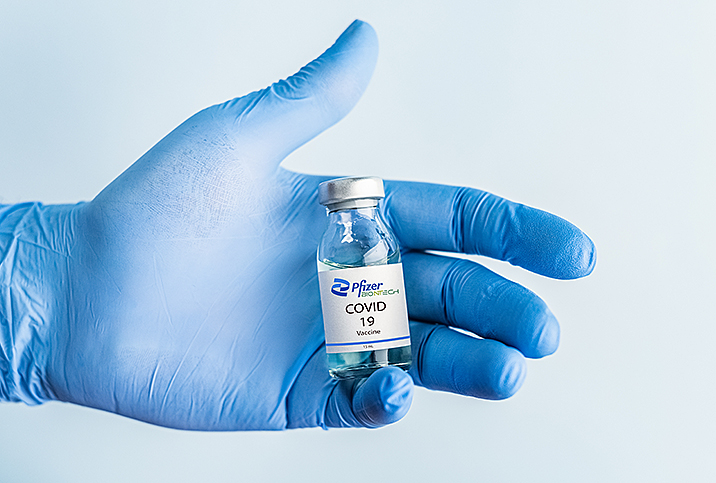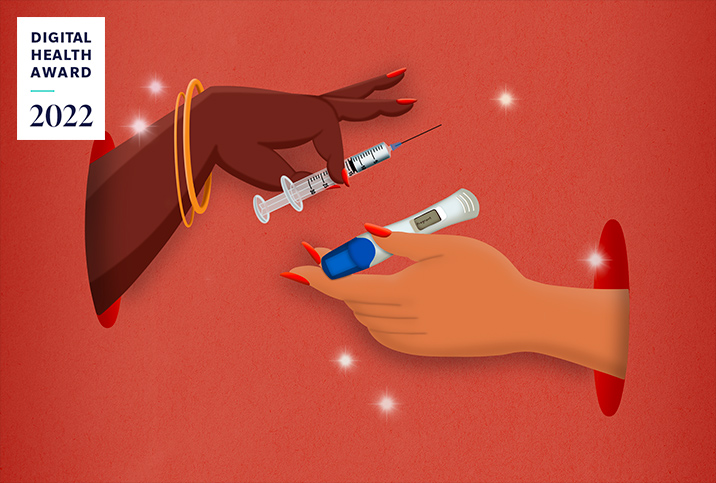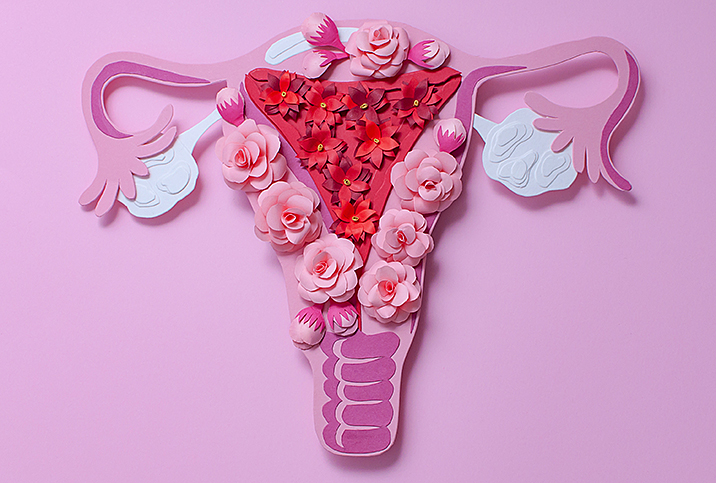Pfizer Vaccine Safe for People With Gynecologic Cancers, Study Says

Cancer patients were not included in the initial trials for the COVID-19 vaccines, so it wasn't clear upon the vaccines' release how these patients would respond to immunization.
A growing body of evidence is finding the vaccines to be safe and effective for people with cancer, including a small recent study published in the journal Vaccines that looked specifically at women undergoing chemotherapy for gynecologic cancers.
Published in December 2021, the study was conducted by researchers from Sapienza University in Rome. Forty-four women currently or within six months of receiving chemo for gynecologic cancers—28 with ovarian, nine with endometrial and seven with cervical cancer, with an average age of 61—received two doses of the Pfizer vaccine.
Seventy-five percent of the cancer patients in the study also had comorbidities, including thyroid disorders, and cardiovascular and respiratory disease. The patients' results were compared with a control group of healthy women who received the vaccine during the same time period.
The study indicated the vaccine effectively stimulated the production of antibodies with minimal side effects, however, the cancer patients didn't have as robust an immunologic response as their healthy counterparts. The concentration of antibodies was lower in the cancer patients older than age 50 or who were obese. The concentration also declined more quickly in the cancer patients than in the healthy ones.
"The data suggests that these patients would benefit from further early vaccine shots to boost their protection against COVID-19," the study authors stated.
The researchers pointed out their study was limited by its small size and focus on only one of the approved COVID vaccines. As they wrote, they viewed it as a first step toward future research: "Further large-scale prospective observational studies focusing on patients with active cancer receiving chemotherapy, targeted therapy or immunotherapy and on cancer survivors are warranted to provide more insights on COVID-19 vaccine activity, optimal dose and frequency of booster shots, safety, and potential interactions with cancer subtypes, antineoplastic therapies or other comorbidities."
COVID-19 poses greater risks to cancer patients
"Some cancer types can compromise a person's immune system," said Sarah Adams, M.D., a gynecologic oncologist at the University of New Mexico Comprehensive Cancer Center in Albuquerque and scientific advisor to the Ovarian Cancer Research Alliance. "As a result, people with cancer are more vulnerable to COVID infection and to complications associated with COVID, including severe symptoms, need for ICU care and death."
Adams added: "Some chemotherapy regimens can also suppress immunity. Chemotherapy drugs that kill rapidly dividing cancer cells can also damage developing immune cells. It is common for people undergoing chemotherapy treatment to have a reduced number of white blood cells—immune cells—as a side effect. This means that they are more vulnerable to infection during chemotherapy treatment."
Cancer patients are nearly twice as likely to die or have severe complications from COVID-19 as people who do not have cancer, according to the American Society of Clinical Oncology. Cancer patients with COVID were more likely than noncancer patients to experience hospitalization and death, supporting the hypothesis that cancer is an independent risk factor for poor COVID outcomes, according to a 2021 study from researchers at the University of Pennsylvania.
How other vaccines fare in people with cancer
Not all vaccines are safe for immunocompromised patients, such as those with cancer. These include live-attenuated vaccines, which use a weakened form of the actual virus to build an immune response. "Live" vaccines include the measles-mumps-rubella (MMR) and the chicken pox vaccines. The COVID-19 vaccines are messenger RNA (mRNA) vaccines, which create proteins that elicit an immune response; they do not contain any live virus.
Similar results to the Italian study were seen in a meta-analysis of studies of people with cancer who received an mRNA COVID-19 vaccine of any type. Another meta-analysis of 16 studies of patients with cancer who received any of the mRNA COVID-19 vaccines suggested a lower rate of immune protection.
A JAMA Oncology study looking at both the Moderna and Pfizer vaccines indicated the vaccines were 58 percent effective in preventing infection in cancer patients. This number jumped to 85 percent in patients who'd had their last cancer treatment six months or more prior to their first dose of the vaccine.
Recommendations from the healthcare community
Since the COVID-19 vaccines were made available to the public, the Centers for Disease Control and Prevention (CDC), as well as prominent medical professional associations, have recommended their use by both healthcare workers and patients. The Society of Gynecologic Oncology released a joint statement in late 2020 in support of vaccination, along with the American College of Obstetricians and Gynecologists (ACOG), the International Federation of Fertility Societies and numerous other associations in the fields of gynecology, oncology and reproductive medicine.
"It is our collective opinion, after closely monitoring this situation, that the benefits of COVID-19 vaccination far outweigh the risks," the statement read. "We endorse vaccination for all eligible healthcare workers, patients and our society at large, including populations who are disproportionately impacted by COVID-19 or complications from the disease, in consultation with their physicians or healthcare professionals."

















